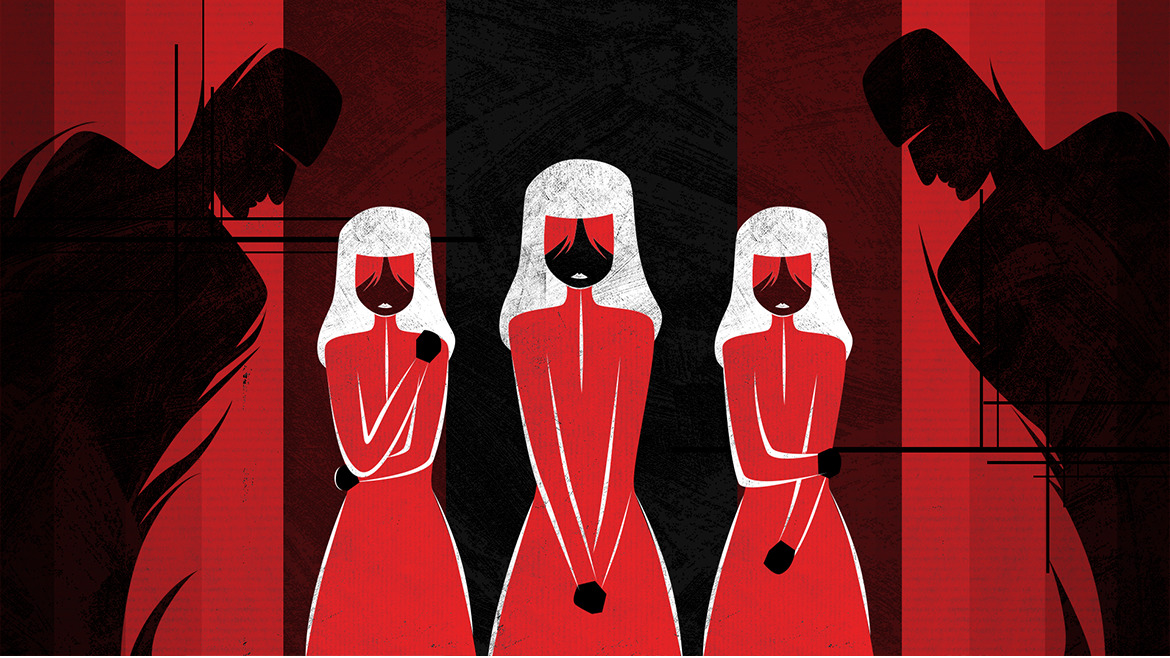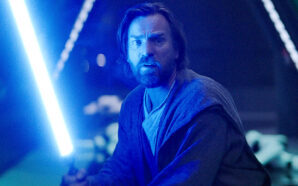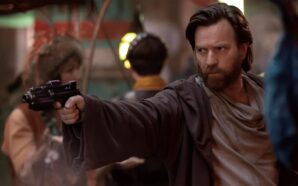My first time reading the last few pages of Margaret Atwood’s novel The Handmaid’s Tale I was incredibly confused. I only read the book for the first time in 2019 and initially thought the “historical notes” at the end were, in fact, real historical notes about the seminal, almost 40-year-old novel. But no. Suddenly becoming metafictional for its final 10 pages, the novel moves 200 years into the future and features a transcript of a talk about the titular tale itself, which is revealed to be a book in the world of the book. I didn’t like it the first time I read it, it being so different from the rest of the novel, though purposefully so. Now I’ve come to appreciate it and the strange additional epilogue it provides the novel. And with the final season of the television series based on Atwood’s The Handmaid’s Tale incoming, will the series dare try and adapt it?
First we have to truly understand the purpose of the ‘historical notes.’ Being a transcript of the Twelfth Symposium of Gileadean Studies, June 25, 2195, it is completely different to the previous 300 pages of Offred’s story. It is detached where the rest of the novel is personal and intimate. It is pretentious and pompous. Anger-inducing, even. It may be, on the surface, a mechanism for suppling information and answers the core text, being from Offred’s perspective, could not, but it is also a statement on how we react to the tales and history of others. These dinner party guests and speakers are so far removed from the struggles of Offred that they joke and jest about Gilead, treat everything from an unemotive perspective focused only on the politics and wider sociology, that they forget the human lives so monumentally affected. It is a cry for us not to be like these people.
The characters in the historical notes include Professor Maryann Crescent Moon, department of Caucasian Anthropology; keynote speaker Professor James Darcy Pieixoto; Professor Johnny Running Dog; Professor Gopal Chatterjee. This is a world much different from the one we hear about for the bulk of the novel, the one of low birth rates and environmental ruin. The western world is now spared these issues, feasting on repopulated Arctic Char, except for the fact that it is no longer dominated by Caucasians. Through multiple possible causes, including nuclear incidents, disease, and birth control, it was only the Caucasian birth rate which fell, with no fix appearing. The TV show has removed much of the race-specific detail of the novel, which is probably for the best, and it is fascinating to see what has already been used from this meta final chapter and what has been excised from the show’s retelling, offering insight into what it could still adapt in the final episodes.
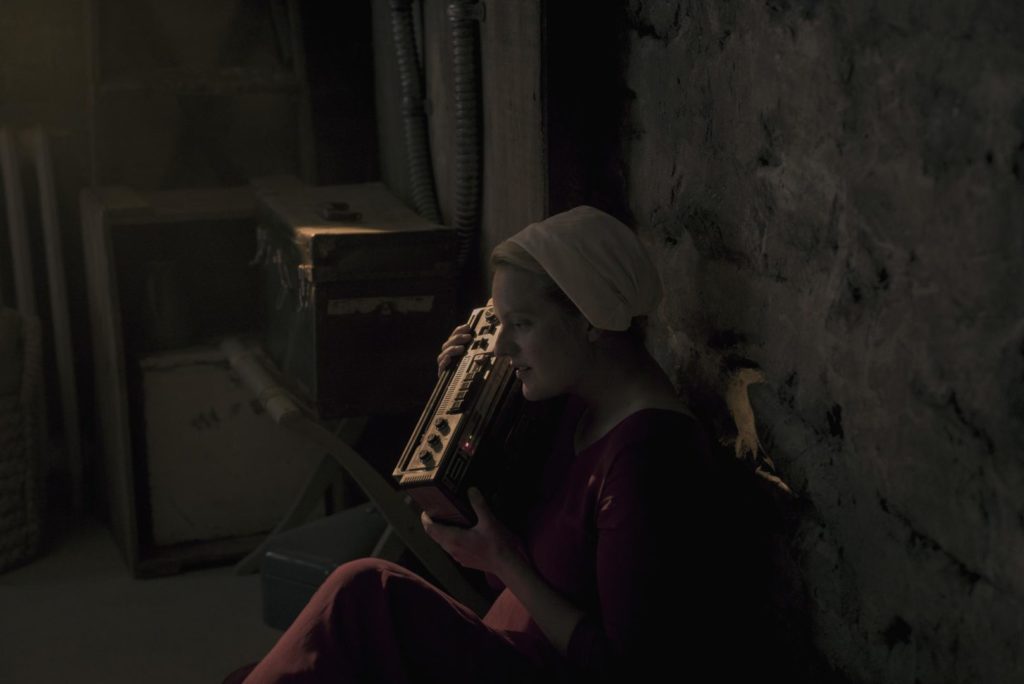
In the world of the book, Offred’s tale was unearthed in an old waystation on ‘The Underground Femaleroad’ and comprised of 30 cassette tapes of her detailing her story. In the third season of the show, June sends Luke a cassette tape with a message recorded on it, likely a nod to this detail. Yet we also learn that all the names mentioned in the tale, such as Luke and Nick, are pseudonyms to protect identities, which is not the case in the show. The historical notes even informed the events of the fifth season finale, so is clearly still in the minds of the writers, when we learn, “the Canada of that time did not wish to antagonise its powerful neighbour, and there were roundups and extraditions of such refugees.”
But larger plot details were, of course, changed dramatically for the show when compared to the few offhand sentences found in the book, like when we learn Fred was executed after his incriminating magazines were found. All this suggests that this part of the novel is important to the writers yet they are not enslaved to following its every detail, meaning that it is unclear whether it itself will be adapted, especially when TV allows us to see events the book could not without breaking from Offred’s POV, making the historical notes a more necessary addition on the page.
Offred herself is subtly mocked during this chapter by the members of the symposium. They have read the same book we have but have a distanced, historical perspective which has eliminated the intense emotional connection we, the reader, have experienced. The speech is preceded by information on an “outdoor period costume sing song” and jokes about Offred being uneducated because she went to a US college. Despite being locked in a room and systematically raped, the keynote speaker claims “she could have told us much about the workings of the Gileadean empire, had she the instincts of a reporter.”
Meanwhile, Gilead and Fred Waterford are constantly excused of their behaviour, sometimes coming close to praise. “Waterford was, in his prime, a man of considerable ingenuity” and “We must be cautious about passing moral judgement upon the Gileadeans,” are among the comments which stood out. And also, “Gileadean society was under a good deal of pressure and was subject to factors from which we ourselves are happily more free.” This whole chapter is designed to leave the reader angry. Angry that Offred’s legacy and tale is not what it should be. It is prodded and poked at but not consumed and, most importantly, learnt from. When looking at whether the show should adapt this coda, we have to ask whether, after everything June and the audience has gone through over six seasons, anger is the emotion that the series should end on.
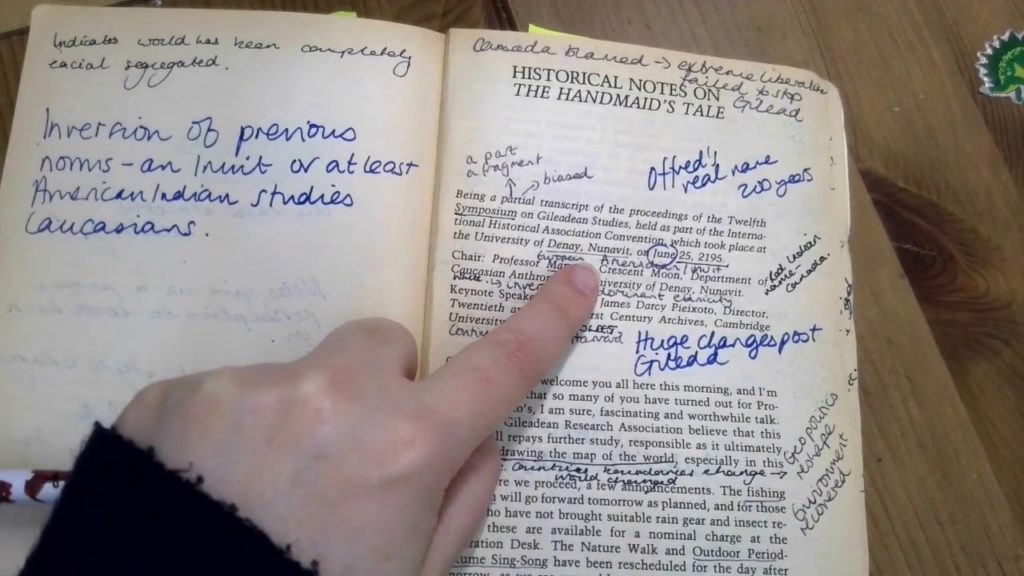
There are also practical aspects which need to be positioned in order for an adaptation of this sequence to make sense in the context of the series. June will need a way to tell her story, something that will become a discussed historical document centuries later. And, unless she’s approached by a publisher in season 6, or, God forbid, starts a podcast, I don’t see this happening. ‘The Handmaid’s Tale’ of the show is likely just the show itself rather than having a meta existence within the series. Yet there is the voiceover, dominant in the early seasons and sparse in the latter. Will there be an explanation for why this exists or is that unnecessary? I once thought that the series was going to have June’s testimony at a trial be her version of telling her story and they kind of did that in season 4 but it was just one, albeit powerful, scene. I was expecting that to be saved for the final season, the final episode, and for that to be the show’s version of ‘The Handmaid’s Tale.’
The Offred of the book is also a drastically different character compared to the Offred of the show. Atwood’s character is ‘just’ a handmaid; nameless; one of many, each with a story like her’s. June is different. In order to continue the story past the events of the novel, she became a much more active protagonist. Although, this did begin back in the first season with the flashbacks to her protesting, which she did not do in the book. But with June as the murdering feminist badass icon that she is in the show, there would be records of her. She’s a historical figure of importance and so the entire discussion around her in a scene set in 2195 would have to be completely different. Maybe the members of the symposium discuss June with active contempt, thinking she had gone too far. Or maybe the scene plays out with a much more generic discussion of Gilead and its fall, but this has been June’s show and that could feel weird and too detached.
Having a scene set in 2195 would certainly be a surprise for those who have not read the book and it would also be a challenge to pull off in a convincing, and not goofy, way. No weird Star Trek costumes, no flying cars in the background, just a regular room that doesn’t look too different than a university lecture hall does today. It’s also a challenge to come up with a satisfying conclusion for not only a series which has moved so far beyond Atwood’s words but also has a sequel series based on the sequel novel, The Testaments, moving into production as soon as it wraps. Can a truly gratifying conclusion be written under these circumstances, knowing the pieces which have to stay on the board for the sequel? Maybe a futuristic flashforward is a good way to add a definitive conclusion to the show, concluding June’s story but leaving her children’s and Lydia’s left to be told.
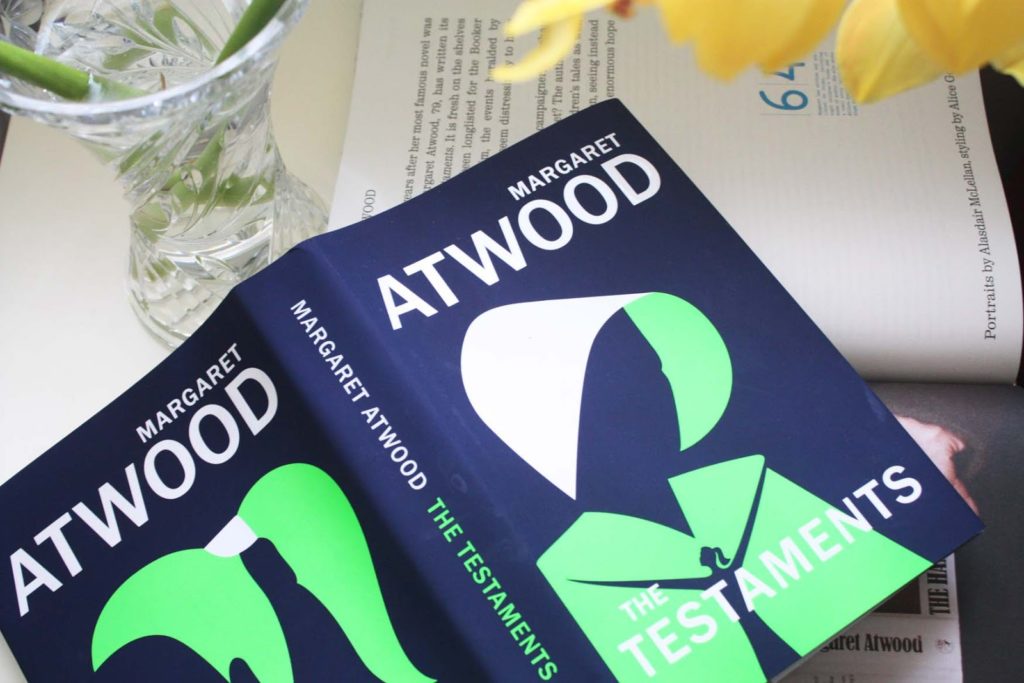
The ‘historical notes’ section of the book works as a meta aspect because books do have historical notes but TV shows do not, making the scene perhaps best left unadapted. It works well in literature, parodying something naturally, but there is no straightforward TV equivalent. How can the show get meta for its ending? Will Chris Hardwick appear for a special edition of Talking Tale once the final episode’s credits roll? Perhaps the show itself could be revealed to be a show in the future of the show’s world, with critics decrying it as political propaganda and historically inaccurate in that it judges Gilead too harshly, getting across the same messages of history repeating, apathy, and failing to learn as the book does.
And while the meta scene concludes the novel, it doesn’t have to be the final scene of the show. Perhaps the finale could begin with a cold open, jumping us to 2195 and framing the final episode as an historical document, commenting on the series but also teasing what could happen in the rest of the episode. But ultimately, I don’t think the writers will adapt the historical notes. If they did, I would be fascinated by it, but there’s so much shuffling of ideas and character which would have to get us to that point, and it works much better in novel form than it would onscreen. Offred’s story in the book is one that incites strong moral discussions through the lens of one nameless woman, one of many, while the show has been dominated by the narrative thrust and character of June and it is with her, not pompous professors, with who the show should conclude.




